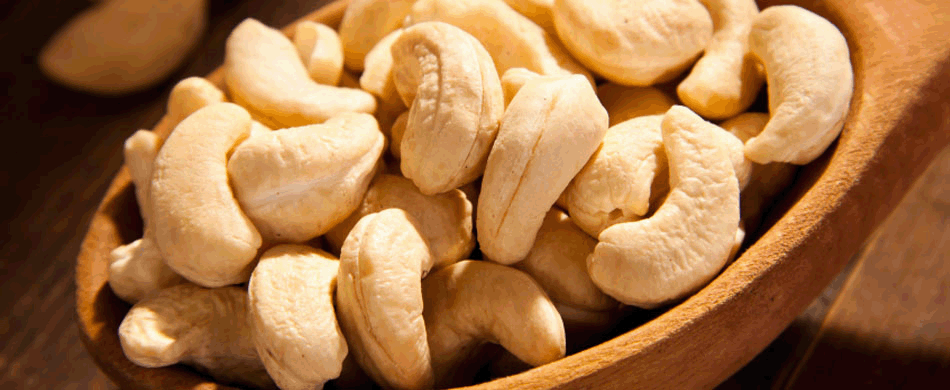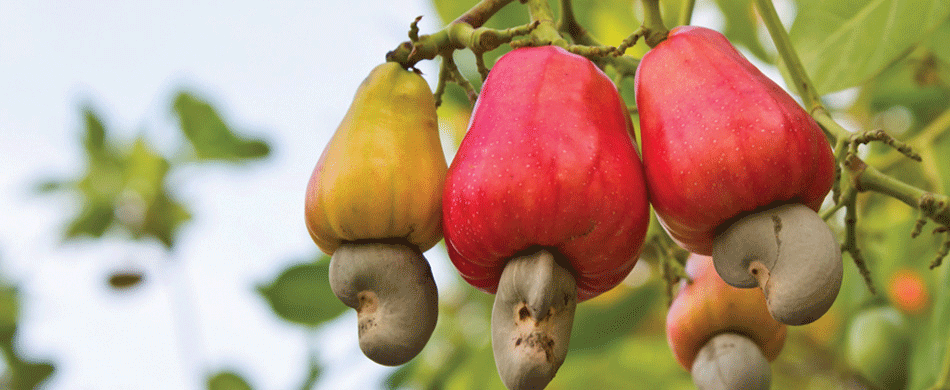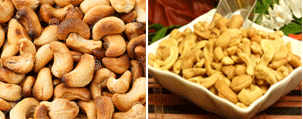Delicately sweet yet crunchy and delicious cashew nut is packed with energy, antioxidants, minerals and vitamins that are essential for robust health. Cashew, or "caju" in Portuguese, is one of the popular ingredients in sweet as well savory dishes worldwide.
The cashew tree is native to Brazil's Amazon rain forest. It spread all over the world by Portuguese explorers and today, it is cultivated commercially in Brazil, Vietnam, India and in many African countries.
Cashew tree bears numerous, edible, pear shaped false fruits or "accessory fruits'" called "cashew apples." Cashew nut which actually is a "true-fruit", firmly attaching to bottom end of cashew-apple, appearing like a clapper in the bell. Botanically, this tiny, bean shaped, grey "true fruit" is a drupe, featuring hard outer shell enclosing a single edible kernel known commercially as "cashew nut."
Its exterior shell composes a phenolic resin, urushiol, which is a potent caustic skin irritant toxin. In the processing units, this outer shell is roasted in order to destroy urushiol resin, and only then its edible cashew kernel is extracted.
Cashew nut measures about an inch in length, 1/2 inches in diameter, and kidney or bean shape, with smooth curvy pointed tip. Each nut splits into two equal halves as in legumes. Cashews feature c ream white color with the firm yet delicate texture and smooth surface. .









